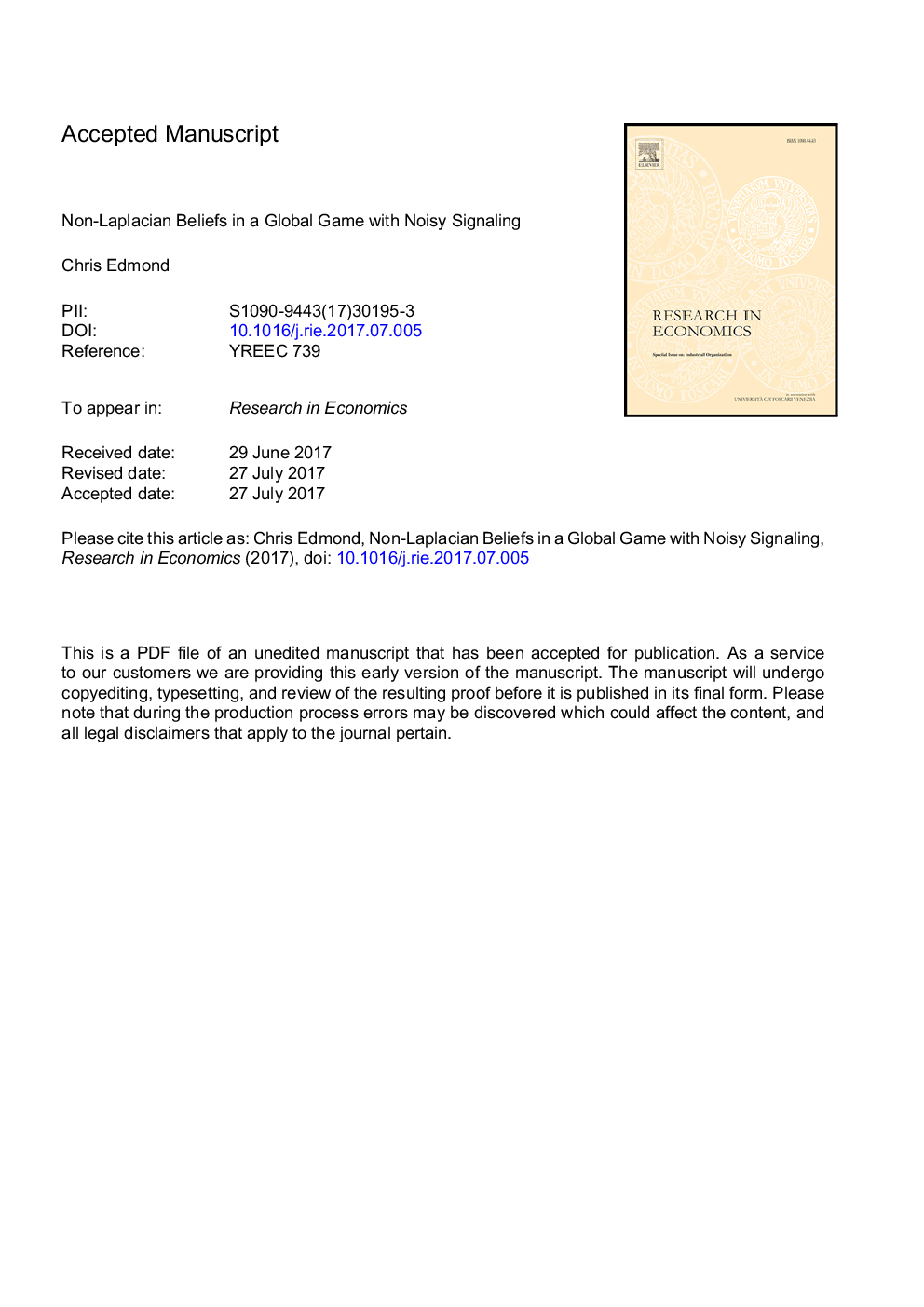| Article ID | Journal | Published Year | Pages | File Type |
|---|---|---|---|---|
| 7384074 | Research in Economics | 2018 | 27 Pages |
Abstract
In standard global games, individual behavior is optimal if it constitutes a best response to agnostic-Laplacian-beliefs about the aggregate behavior of other agents. This paper considers a standard binary action global game augmented with noisy signaling by an informed policy-maker and shows that in this game, equilibrium beliefs depart in quite stark ways from the Laplacian benchmark. In the limit as signals become arbitrarily precise, so that all fundamental uncertainty is removed (leaving only strategic uncertainty), the equilibrium beliefs of the marginal individual concerning the aggregate action collapse to a discrete Bernoulli distribution, giving probability mass only to the polar extreme outcomes. By contrast in the underlying standard global game the marginal individual believes the aggregate action has a continuous uniform distribution, giving equal likelihood to all possible outcomes.
Related Topics
Social Sciences and Humanities
Economics, Econometrics and Finance
Economics and Econometrics
Authors
Chris Edmond,
